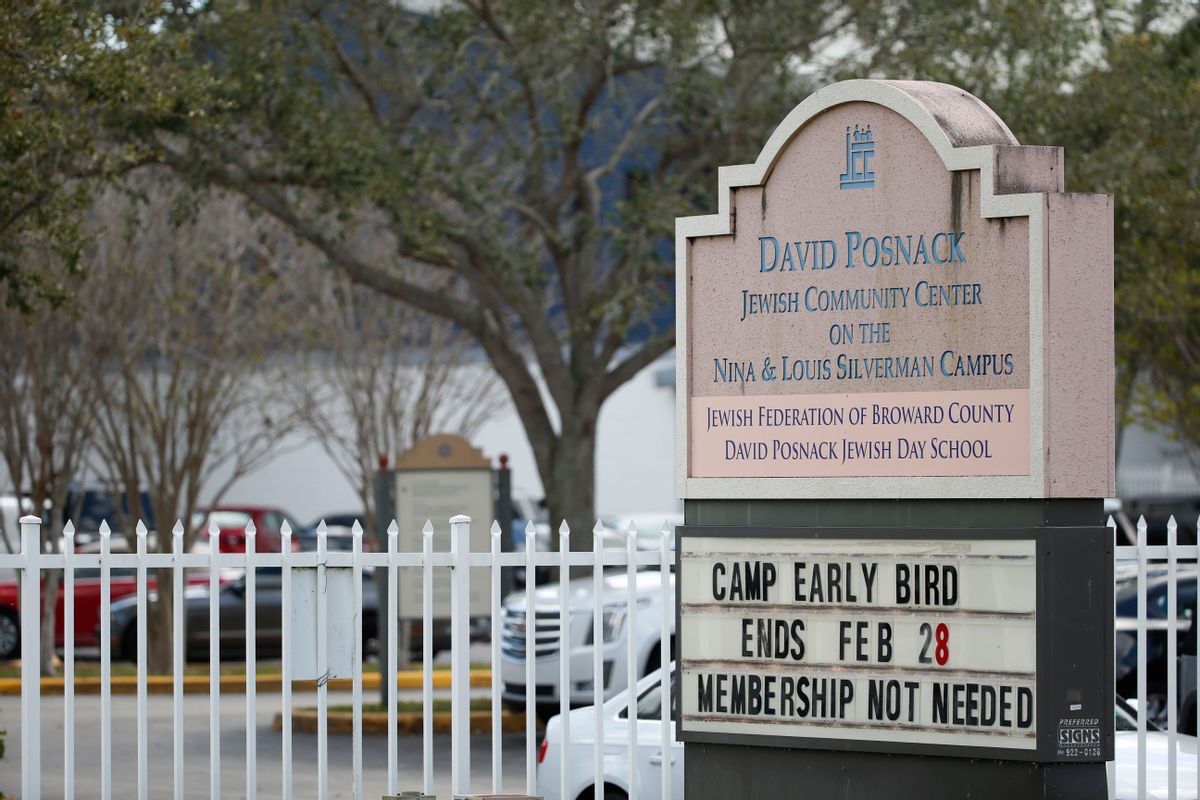TRENTON, N.J. — The latest in a wave of bomb threat hoaxes called in to more than 20 Jewish community centers and schools across the country on Monday again put administrators in the position of having to decide whether a threatening message on the other end of a phone line was enough to shred their routines and put people on edge.
For most, the answer was to evacuate until police arrived to search for anything suspicious and then give them the all-clear to return.
Schools and community centers highlight the need to keep the children and members safe. But some law enforcement experts question whether the evacuations are an overreaction, pointing to the lack of evidence of attackers alerting people to their plans ahead of time.
"Every time we evacuate or close the business it reinforces the idea to these people that they can shut things down with a phone call," said Steve Albrecht, a former police officer and threat assessment expert based in Colorado. "That's how these people who make these types of threats get their thrill, and I want to stop that."
Republican President Donald Trump, who has been criticized as lax in denouncing the threats and other anti-Semitic acts across the country, opened his address Tuesday night to a joint session of Congress with his strongest condemnation yet.
"Recent threats targeting Jewish community centers and vandalism of Jewish cemeteries," Trump said, "remind us that, while we are a country that disagrees on policy, we stand united in condemning hate and evil in all of its very ugly forms."
While the anti-Semitic tone of this year's nearly 100 threats has added a more sinister spin to the hoaxes, schools across the country have been forced to deal with a greater number of so-called swatting incidents, cutting into instruction time and messing with students' routines . The threats have drawn a range of reactions, from evacuations to lock downs to quick decisions to treat them as hoaxes.
Facing a threat from an email in December 2015, Los Angeles ordered its public schools closed for the day. New York's police commissioner, Bill Bratton, called that a "significant overreaction" after his city's schools got the same threat and ignored it.
"It's what they (terrorists) want," Bratton said. "Whether it's a prankster or a terrorist, they want to instill fear."
Gurbir Grewal, a prosecutor for Bergen County in New Jersey, which has dealt with a series of swatting incidents and multiple threats called in to a Jewish community center, said he can't recall any incidents in which an attack was telegraphed. But he said the decision on whether to evacuate is best made by the facilities themselves.
"When children are involved and when houses of worship are involved understandably we always want to overreact rather than underreact," he said. "It's unfortunate because it creates hysteria in schools and houses of worship, places where we assume people to be safe, and that's what's troubling."
He said county prosecutors have met with schools and religious institutions to lay out best practices for discerning whether a call is a true threat or a hoax. They also work to help develop evacuation plans and to collect evidence when threats come in.
Melissa Plotkin, director of community engagement and diversity at a Jewish community center in York, Pennsylvania, said evacuating when a threat came in Monday was part of the center's protocol.
She said the center doesn't want to give in to fear but the safety of staff, children and members comes first. She said the fact the facility had a full parking lot at the end of the day shows that people knew "it wasn't anything they should have been concerned about."
"As long as (the children) are kept safe, well fed, attended for and they don't see any type of difference other than, 'OK, we took a trip today,' then that's the most important thing," she said. "Was their routine changed slightly, yes, but when we come back Tuesday morning it's right back to school."
___
Associated Press writer Mark Scolforo, in Harrisburg, Pennsylvania, contributed to this story.



Shares